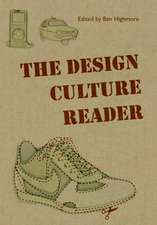Design for Dasein
Autor Thomas Wendten Limba Engleză Paperback
This book draws from philosophy, psychology, object studies, and design theory to articulate the intersection of design thinking and human experience.
When designers talk about related fields, they often mention anthropology, cognitive science, psychology, information science, etc., but philosophy is usually left out. Why? Why don't we talk about philosophy as a contributor to the understanding of design, especially when phenomenology, the philosophical study of human experience, has contributed so much to our understanding of the interrelation between humans and technology?
Design for Dasein attempts to apply phenomenological thinking to design in order to further inform what designers (especially what we might call "experience designers") do in their day to day work. Many activities designers perform every day can be traced back to insights from phenomenology. Activities like user testing, prototyping, sketching, interaction models, personas, interviewing, ethnography, participatory design, and processes like design thinking and lean UX all have phenomenological roots. The book will highlight these connections and explore how they contribute to designing better experiences, providing the reader with new ways of thinking about his or her work, and new strategies for designing systems for both present and future scenarios.
Preț: 130.07 lei
Nou
24.89€ • 26.06$ • 20.59£
Carte disponibilă
Livrare economică 17-31 martie
Specificații
ISBN-10: 1506166539
Pagini: 184
Dimensiuni: 152 x 229 x 10 mm
Greutate: 0.25 kg
Editura: CREATESPACE
Descriere
This book draws from philosophy, psychology, object studies, and design theory to articulate the intersection of design thinking and human experience.
When designers talk about related fields, they often mention anthropology, cognitive science, psychology, information science, etc., but philosophy is usually left out. Why? Why don't we talk about philosophy as a contributor to the understanding of design, especially when phenomenology, the philosophical study of human experience, has contributed so much to our understanding of the interrelation between humans and technology?
Design for Dasein attempts to apply phenomenological thinking to design in order to further inform what designers (especially what we might call "experience designers") do in their day to day work. Many activities designers perform every day can be traced back to insights from phenomenology. Activities like user testing, prototyping, sketching, interaction models, personas, interviewing, ethnography, participatory design, and processes like design thinking and lean UX all have phenomenological roots. The book will highlight these connections and explore how they contribute to designing better experiences, providing the reader with new ways of thinking about his or her work, and new strategies for designing systems for both present and future scenarios.




